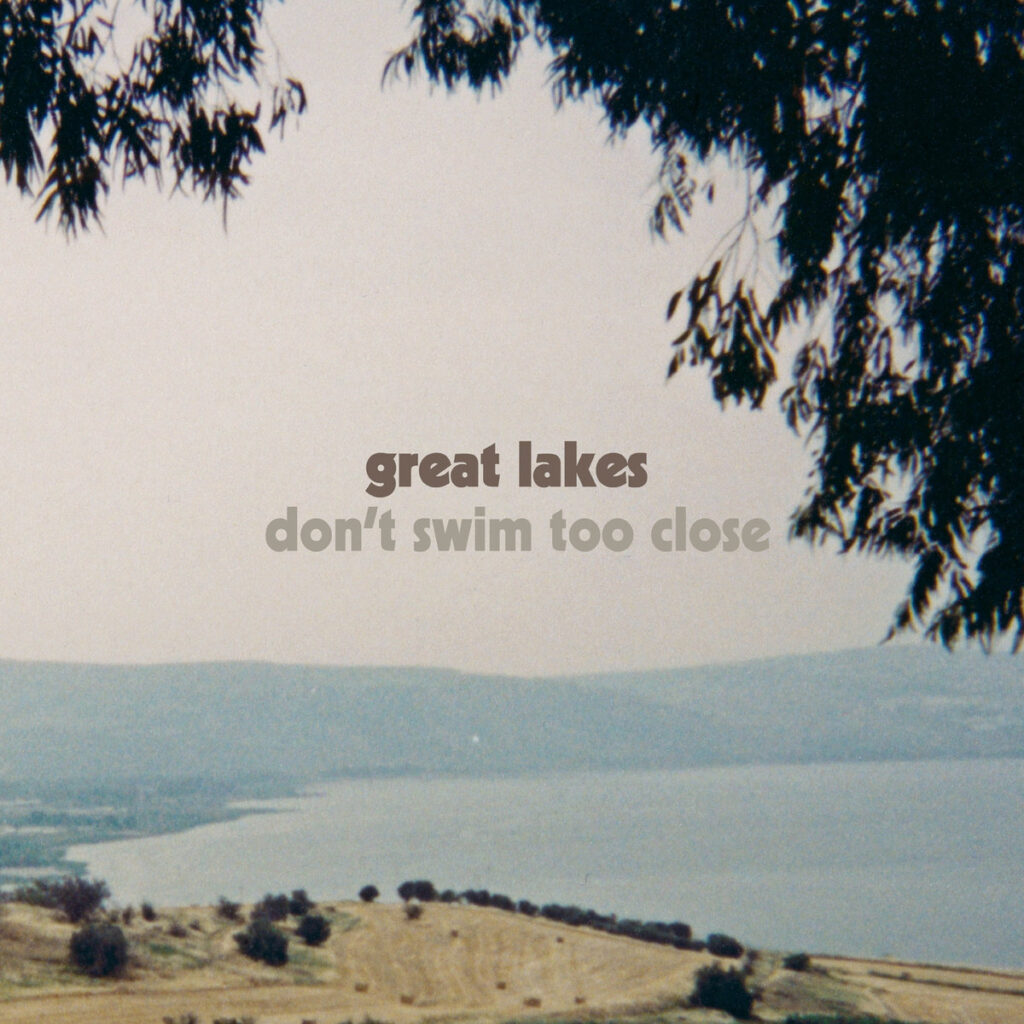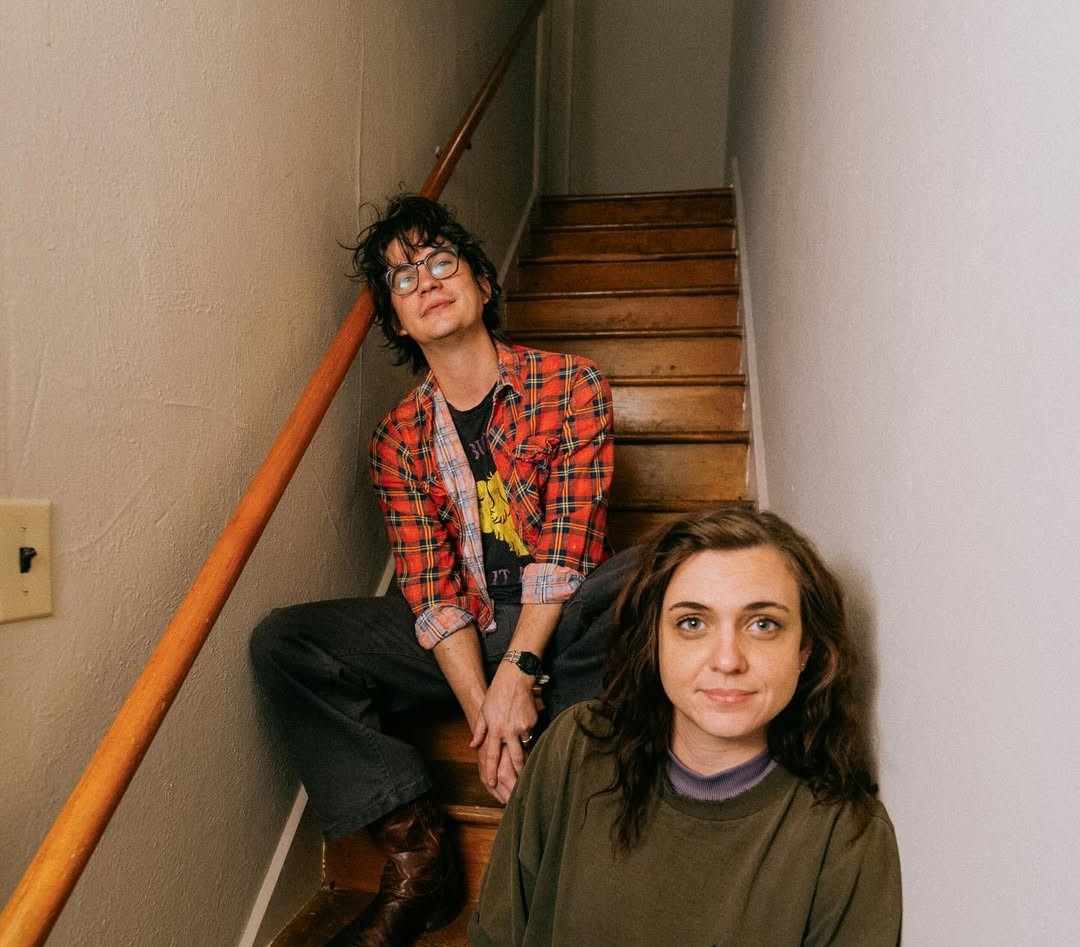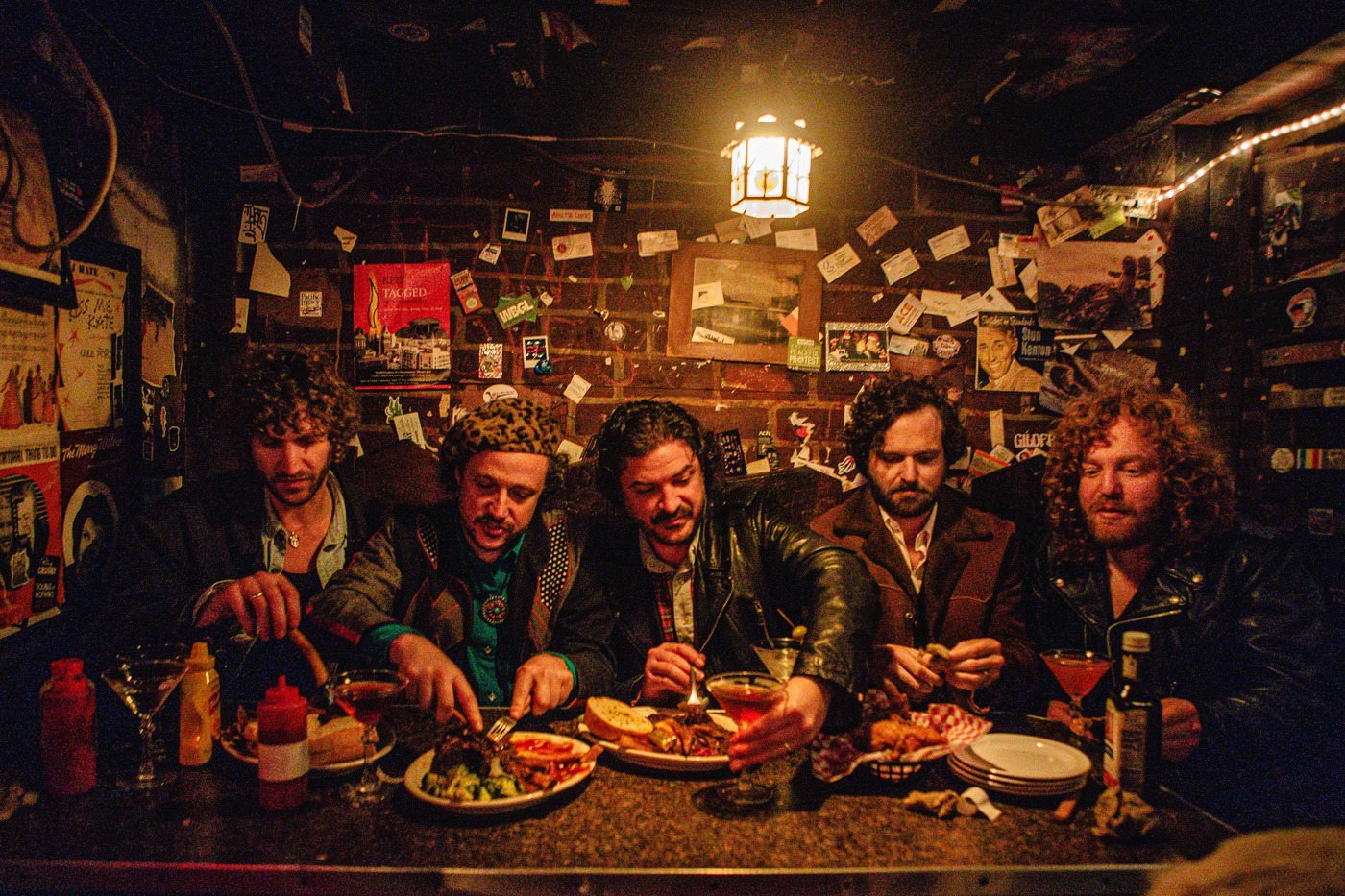Great Lakes: The Elegant Drift of ‘Don’t Swim Too Close’
Ben Crum of Great Lakes writes with the understanding that the soul is never tidy. His eighth album, ‘Don’t Swim Too Close,’ is a bruised, elegant Americana, blending the skeletal edge of Television with heartland rock’s wounded beauty.
Beneath its classic, lived-in feel with echoes of The Band, Crum wrestles with mental static and existential drift. On tracks like ‘Meant to Fly,’ he pulls off the rare trick of sounding both disillusioned and amused by the mess of it all. This is a songwriter who can turn the future into an open grave and still make you laugh. With a collective including drummers Kevin Shea and Sam Cohen adding subtle layers of melody, ‘Don’t Swim Too Close’ is a darkly compelling listen.
TRACK BY TRACK by Ben Crum
At this weird American moment, I know I’m not the only one constantly reflecting on the country’s identity, meaning, and future. Releasing music right now feels a bit like fiddling while Rome burns. While my new Great Lakes album, ‘Don’t Swim Too Close,’ is a personal and inward-focused record, once it was finished I was surprised to realize it also feels like a slow-burn meditation on whatever it is America means.
‘Another Klaxon Sounds’
I briefly lived across the street from an old klaxon in a small Upstate New York town. Luckily, it very rarely went off—but when it did, what a sound. It was a palpable reminder that sometimes a metaphor is loud, and that life’s klaxons say, “Hey, watch out.”
‘On the Way Back’
Graham Greene’s memoir Getting to Know the General recounts his time in Panama in the ’70s as the guest of Omar Torrijos. That narrow isthmus has just one main road—a highway that runs the length of the country—so nearly everything you pass along the way, you’ll see again “on the way back.”
In the book, Greene confesses that while traveling there, he came up with an idea for a novel—but over many rum punches, dips in the sea, and countless idle hours, he inadvertently shared the entire plot with friends and acquaintances. Having done so, his desire to actually write it fizzled out.
The writer in me relates to that story.
‘Carry the Message’
I wrote this song after reading an article about David Berman’s final days. I was struck by the poignancy of his parting words to an acquaintance: “Carry the message.” I went home and wrote not a tribute, exactly, but a personal song inspired by that phrase.
‘Like an Open Grave’ (this passage originally appeared at ‘A Pessimist Is Never Disappointed’)
This song is about regret and the onset of anxiety in my late forties: “The future’s out there, waiting like an open grave.” It’s also about how I try to cope by being honest—“I only tell the truth, that way I don’t have to keep track of lies”—and by admitting vulnerability: “I don’t know what I don’t know, and it scares me as it’s passing me by.”
After years of touring and countless hours playing, I’ve come to see the best moments of performing and improvising as being “out beyond the notes”—a state where you’re not thinking about scales, hand positions, or chord changes. You’re just existing in pure music. It’s rare and fleeting, but glorious.
This song puts that idea alongside another: “I’d be out beyond the notes if not for the pain / but modern American life’s such a sham, does it matter anyway?”
We know government, religion, and business are shams, and my disillusionment just makes me want to rise above: “When I fade away I’m gonna ride my skateboard across the astral plane.”
‘Don’t Swim Too Close’
I wrote the title track while recovering from a severe concussion that left me scared and wondering if I’d ever get my brain function back. Ironically, despite what inspired the song, it came out sounding—at least to me—a bit hopeful and lighthearted.
It’s cliché to say I find those juxtapositions interesting, but I’ll own it. The line “It was the nightmare of my choosing and I found I couldn’t outsmart the pain” speaks to how frustratingly ineffectual intellect can be in combating emotional struggles.
I especially like David Gould’s bass part on this track, and James Richardson’s twangy, surfy guitar, too.
‘San’s Blues’
This is the first of two instrumentals I wrote using San Fadyl’s old drum tracks. Before he died, I recorded and toured with him in a version of The Ladybug Transistor. We had a strong connection. We’d even made tentative plans for me to visit him in Switzerland—to hang out and do some recording—but it kept getting put off.
Why I couldn’t find time to make music with my friend in Switzerland, God knows. Then one day he was gone—dead from a sudden, severe asthma attack. It was heartbreaking. So it was a pleasure, in a way, to get to play with San again—from beyond the grave.
‘Seeing Through Her’
This is a simple, sincere love song about a specific moment with my wife, standing at the foot of the Front Range of the Rocky Mountains in Boulder, Colorado. Musically, I was aiming for Willie Nelson meets ’70s Dion. Kyle Forester’s piano helped me get as close as I was ever going to get.
‘The Freer Heart’
An old song that evolved over time—it began as fiction but became memoir. It references the “nothing is written” moment in Lawrence of Arabia. I’m pretty sure I stole the line “There are no good kings, only burning palaces” from somewhere.
‘Meant to Fly’
Partially inspired by Gertrude Crampton’s children’s book Scuffy the Tugboat, about a toy tugboat who dreams of bigger things than being a little boy’s bath toy.
Sam Cohen’s electric 12-string and pedal steel really make this one for me, instrumentally. But the heart of the song is in the lyric:
“The birds, they don’t call this place America /
To them, it’s just the land /
They might fly up to Canada or down to Panama /
They’re just animals—I envy them.”
And the ending is a smirk.
‘Song for the Old Man’
My dad was more fulfilled than anyone I’ve ever known. It was profound. Before he died, he had a lucid moment with me and said, “I’ve done some interesting things, but it’s getting down to the end.”
There’s an image in this song that’s powerful and personal for me. Where my family is from, on Decoration Day people gather at family cemeteries to place flowers on the graves and stand around talking. Of course, the kids get bored and run around. In the song, I imagine my dad’s grave—bare dirt, before the grass had grown back—with little kids running across it.
The song ends with an equivocation: “What a thing to give to a son.” Of course, I benefited from my dad’s sense of fulfillment, but as a father myself, I find it impossible to emulate.

‘Ohm’
The second of two instrumentals that use San Fadyl’s old drum tracks. I like how I accidentally quoted one of John Squire’s guitar licks in this tune. I love The Stone Roses and have listened to them so much that sometimes I find myself echoing licks I never consciously learned.
‘Are We Here Accidentally?’
This song ponders big questions amidst the mundane:
“There’s always someone on the phone /
always someone we’re supposed to owe /
well, I guess, if you say so.”
It’s about how awareness of the vastness of the universe—if kept in perspective—should logically make our daily malaise feel less consequential. Of course, that perspective disappears the moment trouble strikes; we rightfully allow ourselves to be jolted back into our own small realities.
I also think about the accident of birth, and the role it plays in shaping a life and fate. James Richardson had a big impact on this one—he plays guitar, keys, and bass.
Thanks for reading and listening.
—Ben
Great Lakes Instagram / Bandcamp
Happy Happy Birthday To Me Records Official Website / Facebook / Instagram / Twitter / Bandcamp / YouTube




